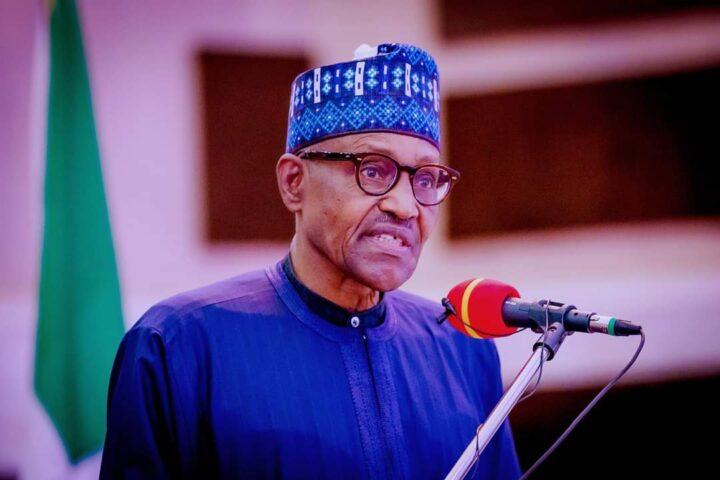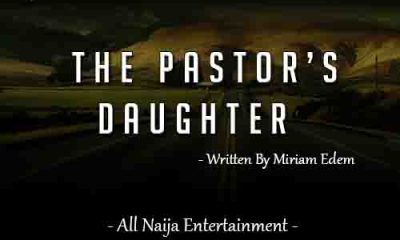General
Buhari’s Democracy Day Season Letter: The Challenge of World War III Blitzkrieg in Nigeria

Bola A. Akinterinwa
A Third World War is undoubtedly in the making but it is not following the old patterns. The old pattern was characterised by blitzkrieg which is basically the strategy of amassing an overwhelming force comprised of armoured and motorised or mechanised infantry formations. Blitzkrieg, a German word meaning ‘lightning war,’ has its origin traceable to Carl von Clausewitz, a military strategist, who proposed the principle of Schwerpunktprinzip meaning ‘concentration principle’ as a tactical war strategy in the 19th Century. Blitzkrieg is the combination of surprise, speed and superiority in firepower to destabilise an enemy in a war front.
In the thinking of Von Clausewitz, who took time to study Army Generals before Napoleon, army commanders generally dispersed armies without focused reasoning and were unnecessarily wasting resources. He therefore recommended in 1832 in his book on war the need for an effective single action, in a single moment, which he called Schwerpunkt, meaning ‘centre of gravity.’ The current centre of gravity of the WWIII in the making is the Russo-Ukrainian war which started with blitzkrieg. The other battle fronts are Myanmar, Afghanistan, and Nigeria. The war in Nigeria has the characteristic of a concentration principle in which there are kidnappings, armed banditry, Fulani herdsmen attacks, Boko Haram insurrection, and Fulanisation agenda, all by surprise.
Without doubt, the emerging features of World War III can be explained by an allied-triangle. At the base of the triangle, there are the Cold and Hot War angles both of which are equal in degrees. The other third angle is that of non-forceful approach to the war. The manifestations of the hot war are multidimensional in scope while the peaceful approaches include adoption of re-colonisation policies by new means, and particularly repopulation in Rwanda and dictatorial democracy, to which Nigeria is currently playing host.
Most unfortunately, unlike past World Wars which had their blitzkriegs in some specific theatres, the emerging WWIII are taking place severally in different regions of the world, a situation that makes control coordination very difficult. No one is seeing the insurrection, the armed banditry and Fulani invasion of Nigeria as a manifestation of WWIII, whereas it should be seen as such. And perhaps more disturbingly, PMB, consciously or unconsciously, is increasingly being seen as an instrument of destabilisation of Nigeria, for which he has politico-legal mandate to defend and protect. PMB’s Democracy Day Season Letter to the people of Nigeria lend credence to the foregoing observations.
PMB’s Democracy Day Season Letter
There are some critical issues in PMB’s democracy day season letter to Nigerians. First, there is the factor of declining affection in PMB’s relationship with Nigerians. Whenever PMB wants to address Nigerians, especially when he wants their support, he tries to endear himself to the people by using words of cordiality and umbilical cords. When he gets what he wants, such friendly words naturally disappear. Speeches of PMB often begin with either Fellow Nigerians or My dear Nigerians or my compatriots. These expressions do not have the same effect in terms of extent of sentimental attachments.
For instance, in a communication between two individuals, the communication can have a horizontal character in which case the two people are at par in their conversations. Equality is the rule in this case. The conversation can also be vertical in which case we have someone on top and another at the bottom. In other words, the conversation can be descending, that is, giving instructions from above and the recipients are at the bottom and are required to comply with the instructions from above. There are instances when such communications can be ascending in which case those at the bottom can send messages above, but not necessarily in terms of giving instructions but recommendations. In the context of Nigeria, communications between PMB and Nigerians have hardly followed a vertical, ascending pattern but a vertical descending manner.
On May 29, 2016 PMB began his Democracy Day address with ‘My Compatriots.’ This is quite significant because PMB puts himself on the same pedestal with all Nigerians. The factor of togetherness is intrinsic in the expression. Compatriot simply means a ‘fellow country man’ that is having a common country. But what does the word ‘fellow’ that qualifies compatriot mean?
The notion of a ‘Fellow’ can be very ambiguous. It can mean a man or a boy or an individual; a companion or a mate; a counterpart or an equal; an inferior or worthless person; a member of a society or a graduate of a university holding a fellowship or stipend awarded for excellence. Whatever may be the meaning PMB has in mind, including inferiority and worthlessness, when he says ‘Fellow Nigerians,’ the expression can include himself and can imply his detachment or non-inclusion. However, the general understanding of a Fellow, in political statements in Nigeria, especially coup d’état speeches, is that of togetherness and not that of inferiority of Nigerians. Thus, ‘My Compatriots’ in the mind of PMB meant in 2016 togetherness, solidarity and sharing of sentiments.
In 2017, PMB was not available to make a Democracy Day speech. It was the Vice President, Professor Osinbajo, as acting president that made the speech. In 2018, PMB showed very warm cordiality of purpose by starting his Democracy Day Speech with ‘My Dear Nigerians.’ This expression does not imply commonality of country. It simply shows a modicum of affection. Nigerians are dear to PMB as those fighting for protection of democratic values also refer to Nigeria as a country and a people dear to them. The choice of ‘My Dear Nigerians’ cannot but be in preparation for the 2019 re-election. The election sloganeering was the ‘Next Level.’ From what level to which level was and still is the question? Answers require building an entente cordiale between PMB and Nigerians, hence, probably, the choice of ‘My Dear Nigerians.’
On 12 June, 2020, 2021, and 2022 the Democracy Day Speeches of PMB began with Fellow Nigerians. Probably because of the inadequacies in the 2022 speech and probably because of public criticism of the speech, PMB opted to add a footnote to the June 12, 2022 speech on 14 June, 2022. The speech was titled ‘Letter to Nigerians at Democracy Day Season.’ The opening words of the letter is ‘Dear Nigerians.’ The purpose of the letter is to ‘highlight and elaborate some of the developments in the last 12 months of this administration.’
What is noteworthy here is the aspect of his forgetfulness to include the developments or achievements of his administration. It is also the strategic miscalculation of using the Democracy Day to preach the sermons of his administration rather than those of democracy and its challenges with the ultimate objective of engendering public support. Particularly ‘Dear Nigerians’shows the disconnect in the continuum of cordiality with the people of Nigeria. PMB simply said ‘Dear Nigerians,’ unlike ‘My Dear Nigerians.’ Thus, 12 June 2022, apparently because it is his last Democracy Day speech, because of the need to put on record what he considered as part of the achievements of his administration, he decided to write a letter in addition to his broadcast commemorating Democracy Day. In the 26-paragraphed letter, five main issues were addressed: democracy, insecurity, infrastructural development, electoral reform, and corporate existence of Nigeria.
As regards democracy, PMB explained why he changed the Democracy Day from May 29th to June 12th: the need to ‘honour the sacrifices of the men and women of our country who fought for the return to democracy’ and the need to provide ‘an environment for democracy to be an accepted way of life.’ More importantly, PMB tried to justify the commitment of his Administration to democracy by referring to his ‘strong and sustained opposition against non-democratic practices and encouragement of sanctions against countries where military coups took place’, as well as his rejection of ‘third terms projects by some African leaders, because it has been proven to be one of the drivers of military coups and democratic and social instability.
Concerning insecurity, Nigeria’s situation is not different from what obtains elsewhere. Ethiopia is engaged in civil war. So is Eritrea. Mexico has the problem of drug war. Yemen has a civil war. As of 1 April 2022, the Council on Foreign Relations Global Conflict Tracker says there were at least 27 live Conflicts worldwide. More important, Tess Lowery in Global Citizen of April 1, 2022 summarises the situational reality of insecurity in the world thus: ‘nuclear arsenals are swelling. Conflict is on the rise. Millions are displaced. International law is disregarded with impunity, as criminal and terrorist networks profit from the division and violence. This is the situation the world finds itself in today. Additionally says Tess Lowery, ‘the reasons for the outbreak of conflict range from territorial disputes and regional tensions, to corruption and dwindling resources due to climate change.’
The situation in Nigeria, as noted earlier, is not different. Nigeria is playing host to a civil war and terrorist insurgency in the mania of Afghanistan. In his Democracy Day Letter, PMB acknowledged that his administration had had critical security challenges, which have prompted the review of security strategies. PMB said the military and security agencies ‘are working hard to rescue all Nigerians in captivity. ‘While PMB expatiated on what he considered as achievements of the armed forces in the past seven years, such as increased manpower intake, better training, better equipment and platforms, as well as having a comprehensive revision of the 2014 National Cybersecurity Policy and Strategy, he simply relied on God’s help for an enduring solution to kidnapping and terror in Nigeria.
As PMB put it, ‘I share the pains of families and direct victims of kidnapped victims who went through and are going through unimaginable trauma in the course of their forced imprisonment. We will, by the Grace of God put an end to these terrors and at the same time improve our efforts to address the underlying drivers of insecurity, namely: poverty and under-employment.’
As for infrastructural development, PMB noted its acceleration ‘through moderate and transparent borrowing, improved capital inflow and at the same time increasing revenue through capturing more tax bases and prudent management of investment proceeds in the Sovereign Wealth Fund.’ In his eyes, this, along with the ‘well thought out commitments and investments in road/rail transport infrastructure, are bearing expected fruits and results.
While PMB’s observations are quite arguable, what is particularly noteworthy in his letter to Nigerians is his declared commitments on unemployment reduction, sustainable democratic culture and credible election, and Nigeria’s corporate existence. It is against this background that the blitzkrieg in Nigeria will now be examined.
World War III Blitzkrieg in Nigeria
The manifestations of blitzkrieg in Nigeria are not far-fetched. The first manifestation is the spontaneity in telling the untruth about the drivers of insecurity in Nigeria. From the perspectives
of PMB and his government, the drivers are poverty and unemployment. There is absolutely nothing to suggest that these are the main drivers of insecurity in Nigeria. The drivers are basically political in initiation, objective and implementation. At best, unemployment and poverty are secondary reasons. In fact, it is because the PMB administration is deliberately or otherwise ignoring the political causal factors that insecurity not only came into being but is also deepening. We contend here that the PMB administration can be said to be responsible for insecurity in Nigeria.
First, the PMB administration has not been seen to have taken any concrete measures against the agents of Boko Haram in government. Former president, Dr, Goodluck Jonathan, said openly that there were Boko Haram agents in his government. When he left government and PMB succeeded him, what is it that has been done to flush out the boko haramists in government?
More interestingly in this regard, Dr. Babangida Aliyu, former Governor of Niger State, explained how some northerners made it difficult for Goodluck Jonathan to defeat Boko Haram in an interview granted Aisha Wakaso of The Punch (vide The Punch, 30 January 2022). Perhaps most significantly, Dr Babangida Aliyu made two interesting points: that ‘when Boko Haram started and Umaru Musa Yar’Adua and Goodluck Jonathan’s government started doing something about it, it fell on former President Jonathan to carry on.’ In this regard, Dr. Aliyu said, ‘many northerners misconstrued his (Jonathan) position at that time and for political purposes, they threw many arguments that made it impossible for the proper articulation and proper implementation of policies that would get rid of Boko Haram and now, we still have them till today.’
The second point of importance raised by Babangida Aliyu is the statement credited to Kawu Baraje, former PDP national chairman in Kwara State that ‘they brought the bandits or Fulani from other places. I think based on the thinking that probably former President Jonathan wouldn’t have handed over power even if they had won, but he handed over power. He congratulated them even before the conclusion proper counting of votes which then took away whatever purposes of bringing those people would have served…’
Without scintilla of doubt, it is on record that foreigners have always been imported to Nigeria, especially during election time through the northern borders. Even when national borders are declared closed, the same is not always true of the northern frontiers. In fact, the argument of the same ethnic group living on both sides of the international borders has always been advanced to justify the ineffectiveness of the immigration and customs officials.
Even if anyone does not want to subscribe to the statement of Kawu Baraje, there can be no disputing the fact of PMB who instructed that illegally residing foreigners in Nigeria who are said to be mainly Fulani from the West and Central African regions to be given six months to regularise their stay in Nigeria. Under normal circumstances, why should anyone enter Nigeria illegally and then be given legal permanent residence on a platter of gold? Why is an act of illegality legitimised? If the PMB government can legitimise illegality, why is anyone now complaining?
And most recently, Governor of Bauchi State, Bala Mohammed, in a televised interview with the Channels Television made it clear that Government was planning to make Nigeria a home for foreign Fulani herders coming from the West and Central African regions. This means conscious policy of facilitating the importation of foreign Fulani herders and enabling them to be in one fold. The indirect logic of Governor Mohammed is that the Fulani settles anywhere and do not have necessarily a specific nationality. But he argued that they are Nigerians in that are spread all over Africa. Besides, there are untapped forests which are being used by criminals, whereas creating colonies for the Fulani and by so doing preventing the forests from being used by hardened criminals is better a policy. Most unfortunately, the problem is that no one in southern Nigeria believes in this. Southerners believe the agenda is in furtherance of the perceived Fulanisation agenda.
A second main manifestation of why PMB should be held responsible for insecurity in Nigeria and why there is blitzkrieg in Nigeria is the Fulanisation cum Islamisation agenda which makes a nonsense of the arguments of poverty and unemployment as main rationales for insecurity in Nigeria. I want to repeat for the umpteenth time that Muammar Gaddafi of Libya made it clear before he was killed, that there would not be peace in Nigeria until Nigeria is partitioned into Muslim North and Christian South. What informed the emphatic assertion?
When Boko Haram first occupied some villages in the Northeast, they promptly tried the establishment of their sovereignty by installing their caliphate national flags. This clearly shows that the objective of the Boko Haram was very political and religious. The problem of the Boko Haram insurrection was not and is never poverty or unemployment. In fact, terrorists are always well funded, especially by countries seeking the promotion of Islam. It is not poverty and unemployment that explain the reckless killings of people accused of blasphemy against the Islamic faith. Jungle justice by some Islamic fundamentalists is nothing more than seeking to impose Islam.
Provisions on Islam in the 1999 Constitution but without any mentioning of the traditional religion and the Christian religion is now an issue to address. More disturbingly, is it poverty and unemployment that explain the senseless attacks on Saint Francis Catholic Church in Owo, Ondo State? Most unfortunately, the Minister of Interior, Ogbeni Rauf Aregbesola, said that the ISWAP was responsible for the attack. If it is the ISWAP, how did they arrive Nigeria? Is the Nigeria Immigration Service not under his Ministry? The truth is that Arakunrin Rotimi Akeredolu has effectively prevented the Fulanisation of Ondo State to the chagrin of the the Fulani herders who want to acquire titled land by force. This is why the attackers went directly to his home base to attack and embarrass him. The Owo attack is a good reflection of the blitzkrieg in Nigeria: 30 minutes of merciless killings without security intervention. Insecurity in Nigeria is worse than the war in Ukraine and the only antidote to containing blitzkriegs in Nigeria is to stop unconditionally the threats of Fulani hegemony in Nigeria. Nigeria’s main problems are not economic poverty and unemployment, but attempts at Fulanisation and Islamisatione.
PMB’s commitment to the corporate existence of Nigeria is good and welcome but the existence of one Nigeria cannot be Fulanised and Islamised. The Muammar Gaddafi approach can be accepted to put an end to the increasing blitzkrieg in the country, but Nigeria must not allow itself to be used as one of the instruments for the containment of the Russian-NATO war which is deepening. It is political dis

-

 Technology2 years ago
Technology2 years agoVoIP Number: Everything You Need To Know
-

 Music3 weeks ago
Music3 weeks ago[Music] Gnash Ft Olivia O’Brien – I Hate you, I Love you
-

 Music2 weeks ago
Music2 weeks ago[INSTRUMENTAL] John Legend – All Of Me
-

 Music3 weeks ago
Music3 weeks agoAlan Walker – Faded [INSTRUMENTAL]
-

 Music2 weeks ago
Music2 weeks ago[Video] 21 Savage ft. Offset & Metro Boomin – Rap Saved Me
-

 Music3 weeks ago
Music3 weeks ago[Instrumental] Wiz Khalifa – See You Again ft. Charlie Puth
-

 ANE Stories3 months ago
ANE Stories3 months ago[STORY] AMAKA THE LESBIAN (Complete Episodes)
-

 Music3 weeks ago
Music3 weeks ago[Music] Akon – Sorry Blame It On Me































